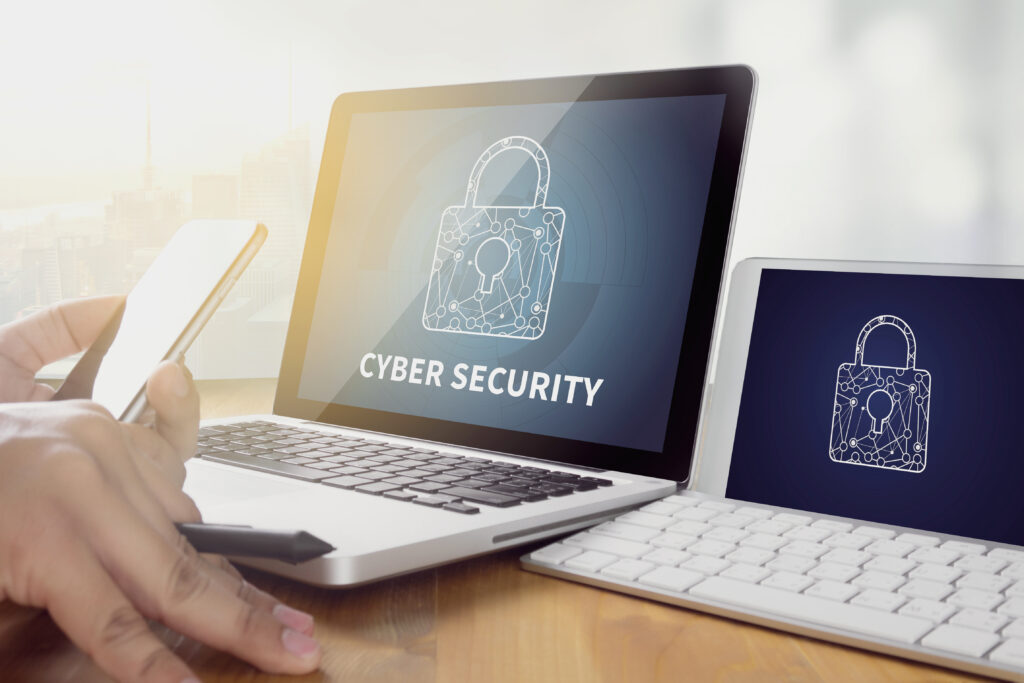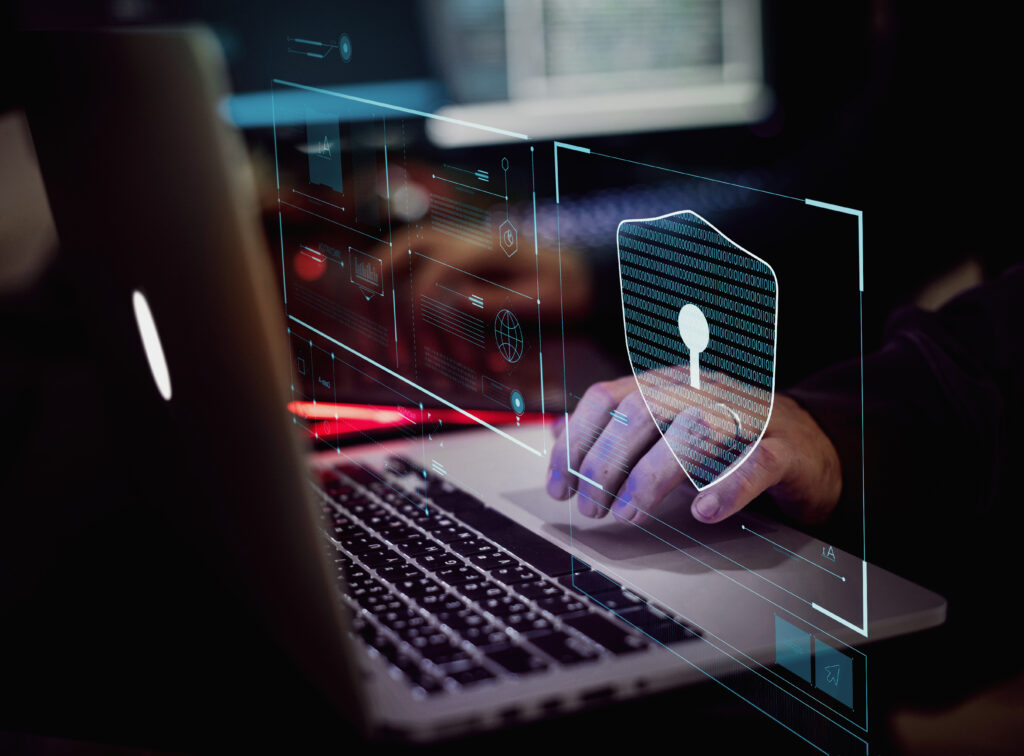Cyber security is a growing concern for businesses. As a travel manager, advising your business travellers on cyber security is a crucial part of risk management. Cyber attacks can lead to financial loss, operational disruption and reputational damage.

Why cyber security matters in business travel
Unfortunately, one of the growing threats to businesses is the risk to cyber security. And examples of these types of breaches are never far from the news. Furthermore, Microsoft estimated that its customers faced 600 million cyber attacks per day globally last year.
People need to be vigilant about cyber security. Protecting clients’ personal data and information must be a priority for all businesses. And, with business travel spending worldwide projected to reach an all-time high of $1.57 trillion by the end of 2025, more travellers will be venturing outside their secure office computer systems. This may mean they become more vulnerable to cyber attacks.
It’s crucial business travellers understand the risk and the implications for their organisation if there is a breach in cyber security.

Top 16 cyber security tips for business travellers
Travelling makes you, your data and your devices more vulnerable to cyber attacks and data loss. Here are some ways you can minimise these risks for your travellers and your organisation.
- Lock your devices. Use passwords, PIN, fingerprint or facial recognition to protect them.
- Use multifactor authentication (MFA) for your work and personal accounts. And only accept an MFA challenge if you initiated it yourself.
- Use strong, unique passwords. At least 12 characters with numbers, symbols and mixed-case letters.
- Use a password manager. Securely store and manage your credentials.
- Avoid public Wi-Fi networks and unknown Bluetooth devices. Use your company’s VPN to secure your connection.
- Limit location sharing on social media. Prevent phishing and social engineering attacks.
- Avoid public USB charging ports. Carry a portable battery instead.
- Watch out for shoulder surfing. Use privacy screens and avoid discussing sensitive information in public.
- Keep software updated. Install updates before travelling to avoid large downloads on the go.
- Run updated antivirus software. Protect against malware from compromised networks and emails.
- Secure devices in hotel safes. Rooms may be open for long periods of time during cleaning.
- Enable ‘Find my device’. Remotely block or wipe lost or stolen devices.
- Don’t post travel documents online. Boarding passes and itineraries contain personal data.
- Use secure travel apps. Our mobile app and digital boarding passes offer added protection.
- Apply for visas via trusted sources. Contact your TMC for safe e-visa application sites.
- Report device issues immediately. IT teams can contain threats before they spread.
Get in touch
Mail [email protected] to discuss all of your corporate travel and event management needs.




